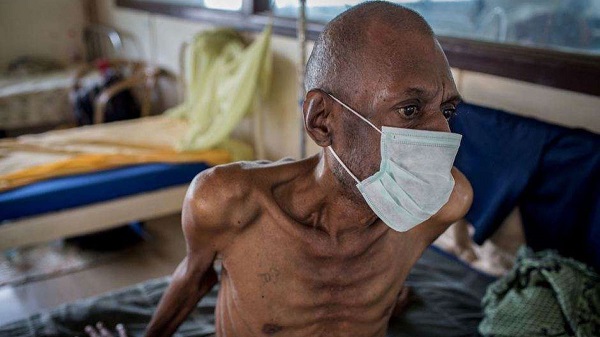
The deputy executive director of Stop TB Partnership, Dr. Suvanand Sahu has revealed that Nigeria is not on track with the Sustainable Development Goals (SDGs) towards ending tuberculosis in the country by 2030.
Speaking during a media roundtable – a strategic initiative of Stop TB Partnership Nigeria to provide the media with an opportunity to discuss TB issues and ensure TB awareness in the country – today in Abuja, Sahu noted that the nation could still end TB in 2030 if she aligns with the global plan.
He said that the global plan lays out how, from now till 2030, a global investment of US$250billion could save millions of lives through early diagnosis and treatment of 50 million people with TB across the world.
Sahu said that the development, approval and distribution of a new TB vaccine and the redoubling of efforts so that emerging crises like the COVID-19 pandemic or conflicts, like the ongoing war in Ukraine, do not derail the programmes.
“The total amount of funding needed to support the global plan’s ambitions is the equivalent of every person in the world donating US$4 per year for the next eight years.
“The economic return on this investment would amount to US$40 for every US$1 invested and as much as US$59 for every US$1 invested in low-and-middle-income countries; if, instead, the status quo is maintained.
“TB is expected to continue to kill between 4,000-5,000 people every day. An additional 43 million people will develop TB and the cost in human life and disability would translate to a global economic loss of US$ 1 trillion,” he explained.
The national coordinator, National Tuberculosis, Buruli Ulcer and Leprosy Control Programme (NTBLCP), Dr. Chukwuma Anyaike said that, under the organisation’s watch, Nigeria has the first compendium of best practices in the country.
Anyaike said that partnership coordination and multi-sectoral engagement ensured intervention distribution mapping to avoid double funding.
He said the challenge which may hinder the achievement is the country’s non-implementation of the mandatory TB notification by private facilities as agreed by the National Council of Health.
Anyaike added that the country’s engagement with all private for-profit facilities was still lower than 10 per cent.
He said that the diagnostic in-country coverage with World Health Organisation (WHO) recommended molecular test was skewed distribution leading to poor access, sub-optimal domestic resources, as well as low child TB cases notification.
The WHO NPO TB/HIV, Nigeria country office, Dr. Amos Omoniyi, said that Nigeria may not achieve the 2035 target to end TB.
“We need to implement data-driven, evidence-based technology to enhance interventions as contained in the National Strategic Plans (NSP)’ lessons learnt,” he explained.
Omoniyi disclosed that 70 per cent of the TB budget in 2021 was not funded in the country.
Earlier, the founder, TB People Nigeria and a survivor Mrs. Tope Adams called on the Federal Government to declare a state of emergency on all forms of TB in the country.
Adams said that TB is better imagined than to be experienced while stressing that nutrition is the major problem in recovery from the disease, which she alleged has always been downplayed in the country.
She, however, called on the media to increase awareness of TB reporting in the country, as some Nigerians were unaware of the killer disease.
Adams added that TB survivors need psychosocial and financial support to be fully reintegrated back into society.
Meanwhile, the executive secretary, Stop TB Partnership Nigeria, Mr. Mayowa Joel, said there was still a need for the media to intensify awareness of TB and to work with all relevant stakeholders.

